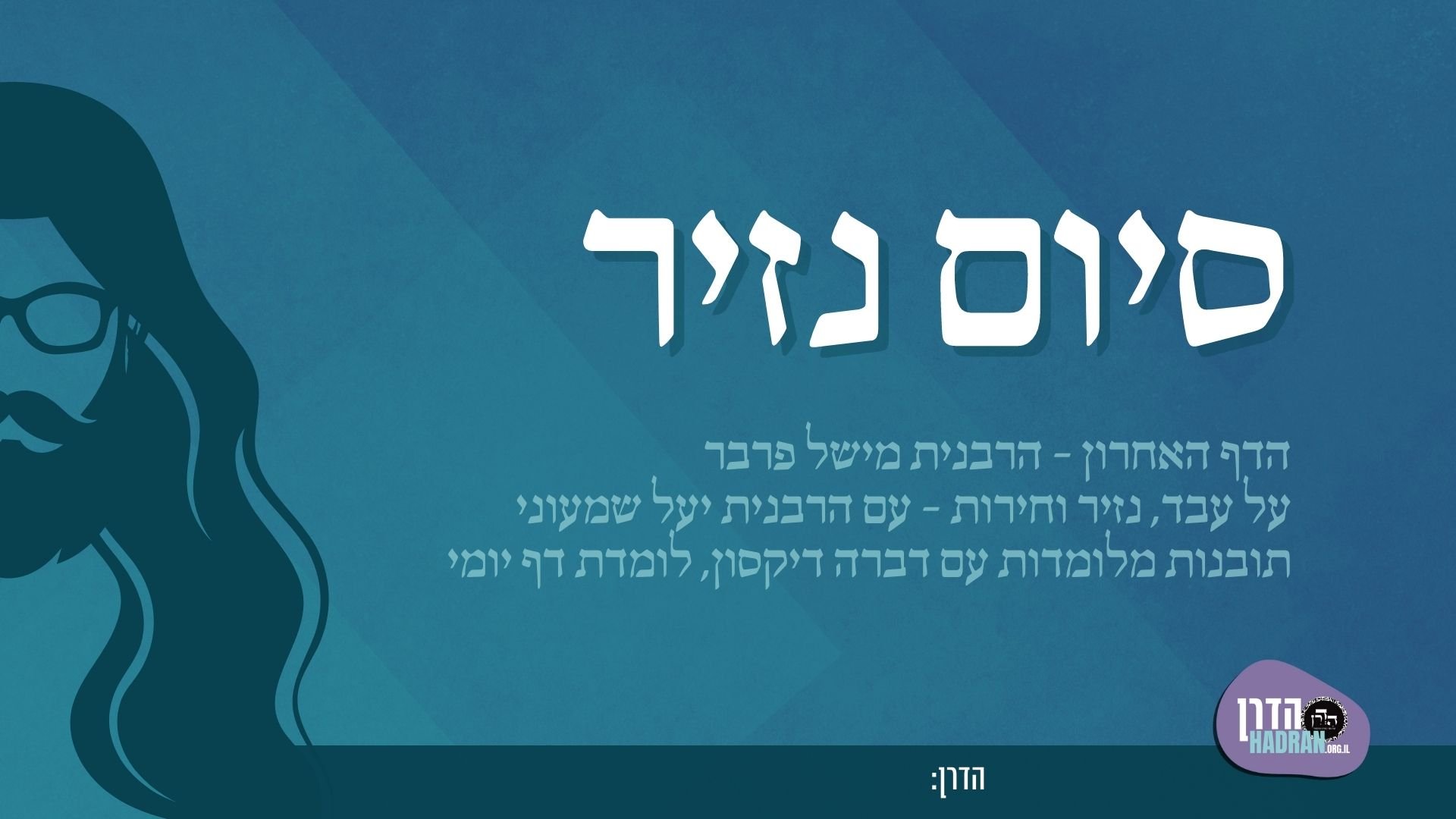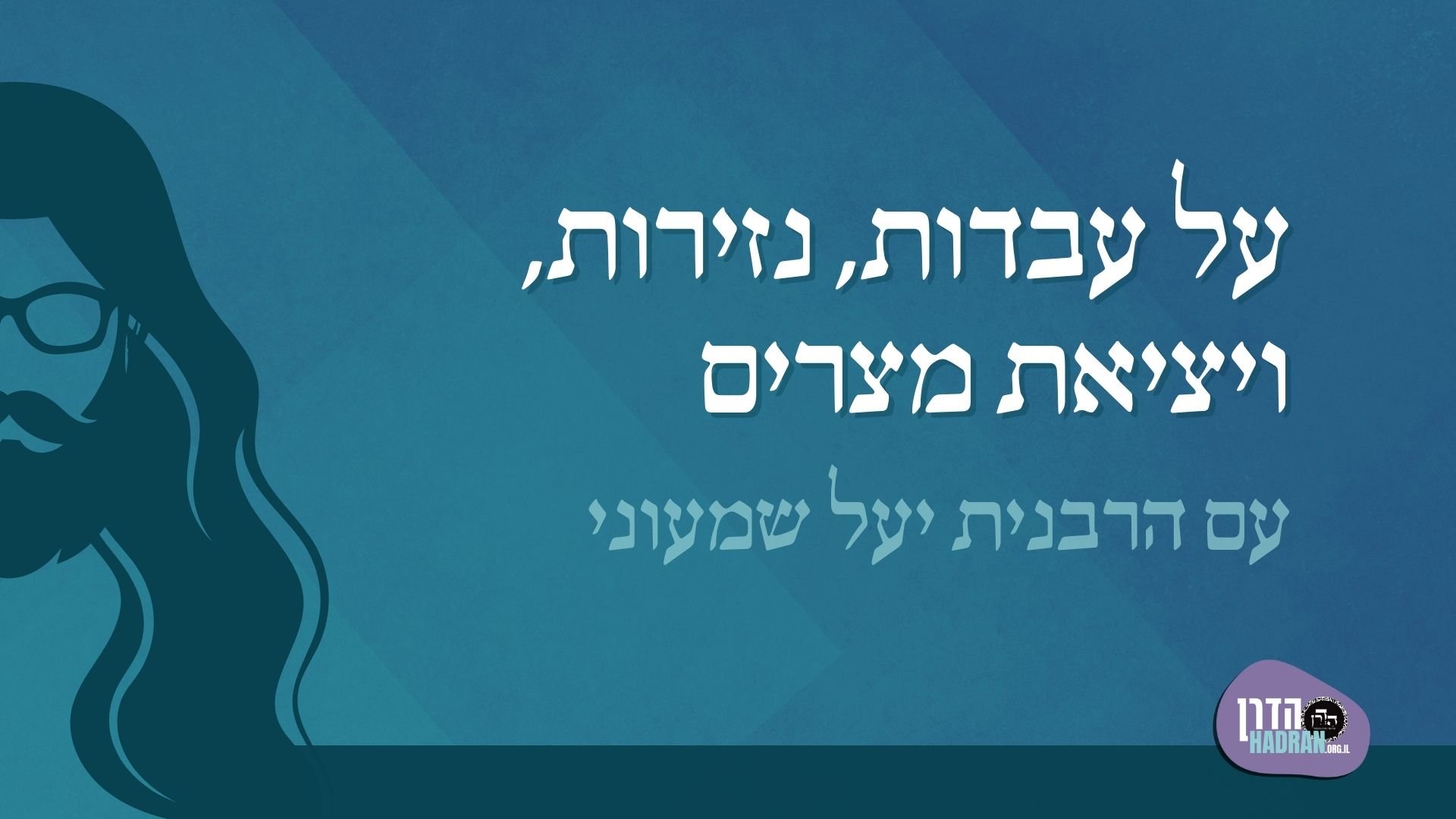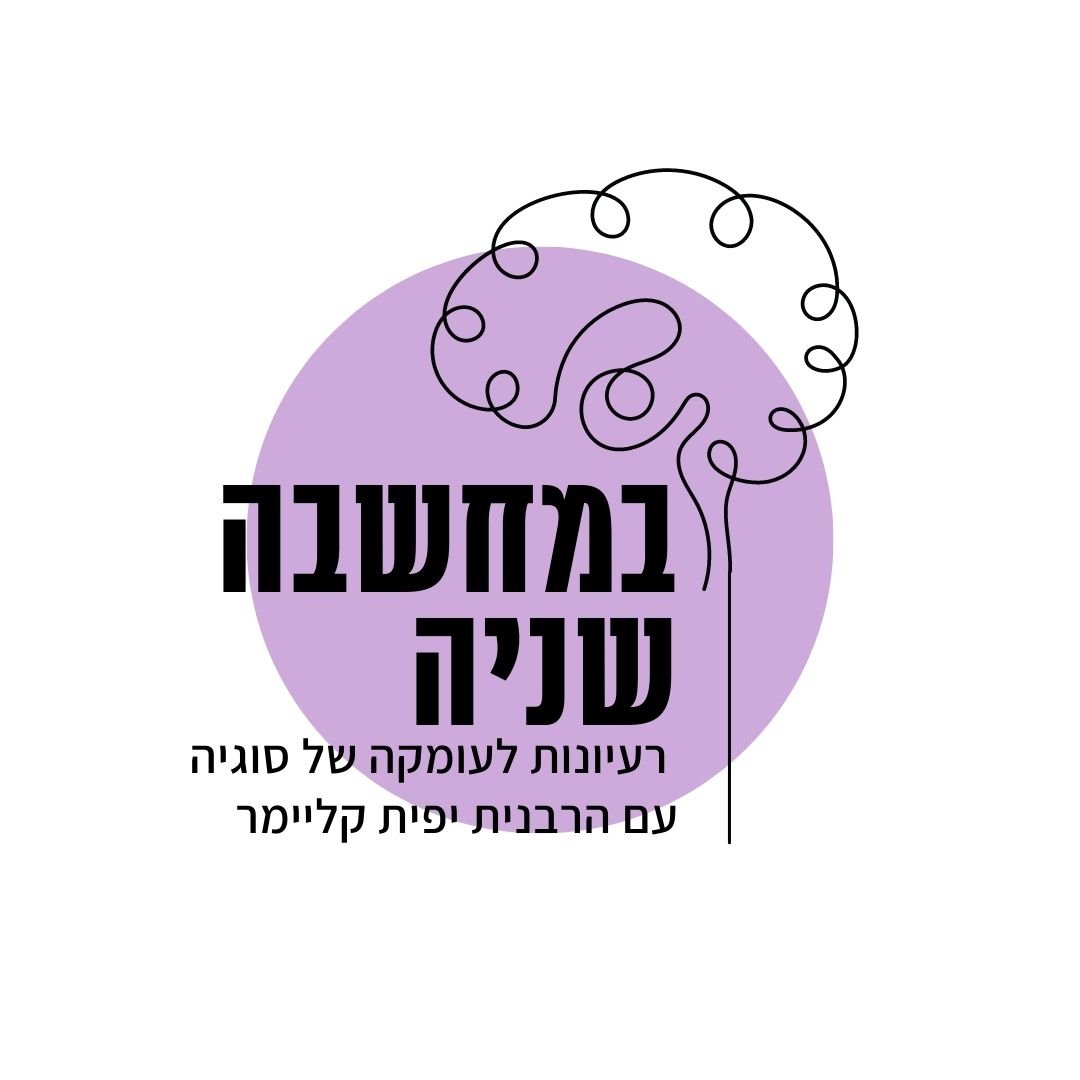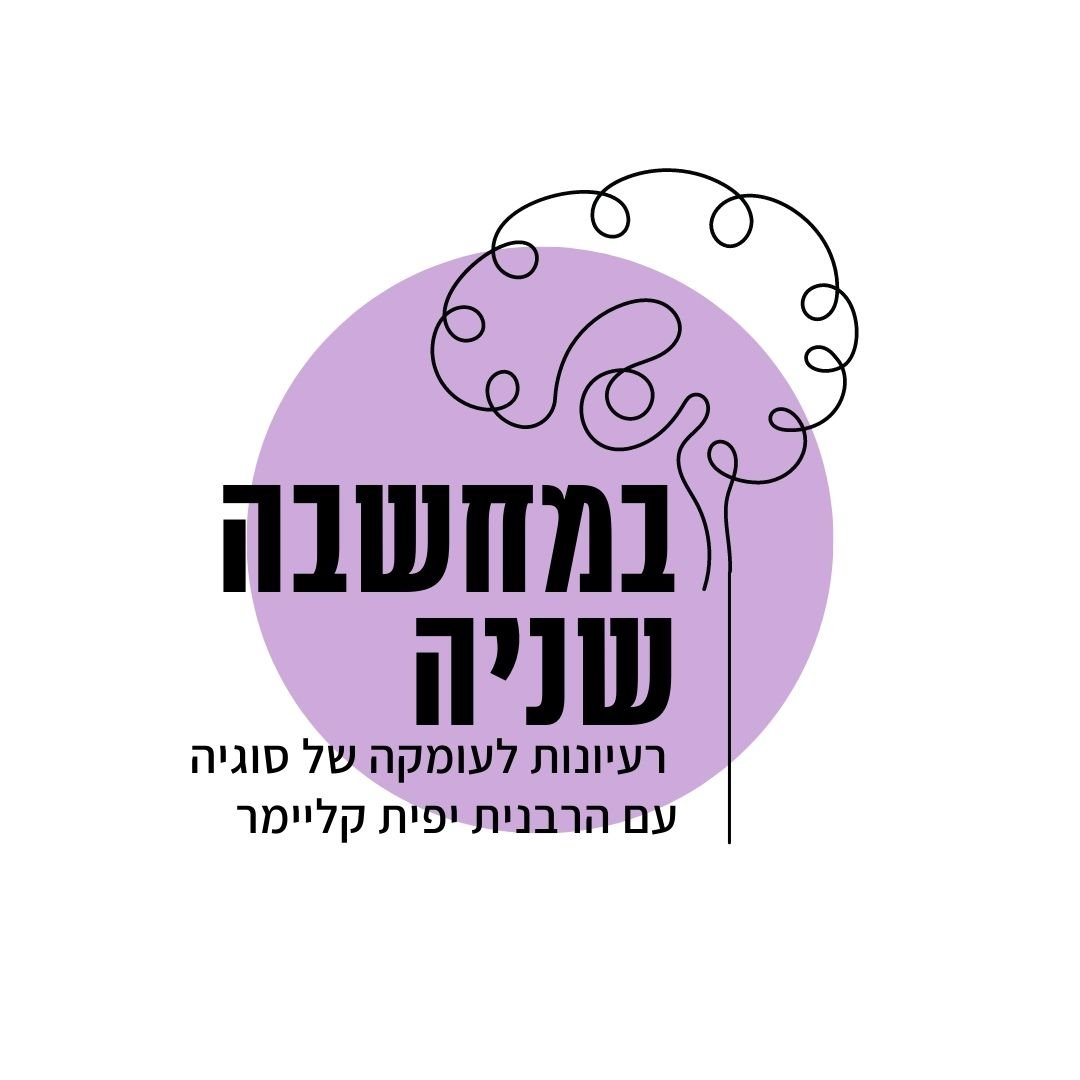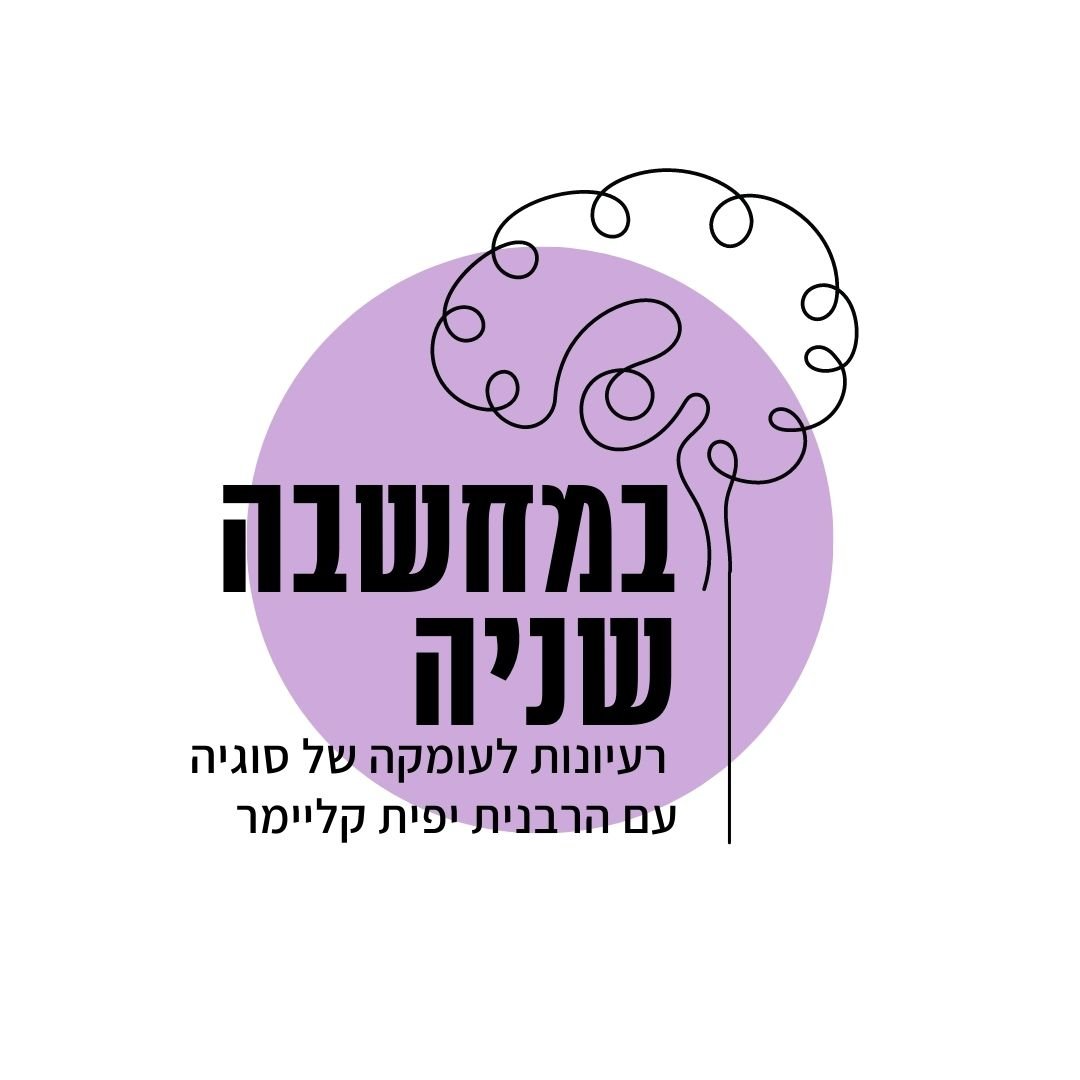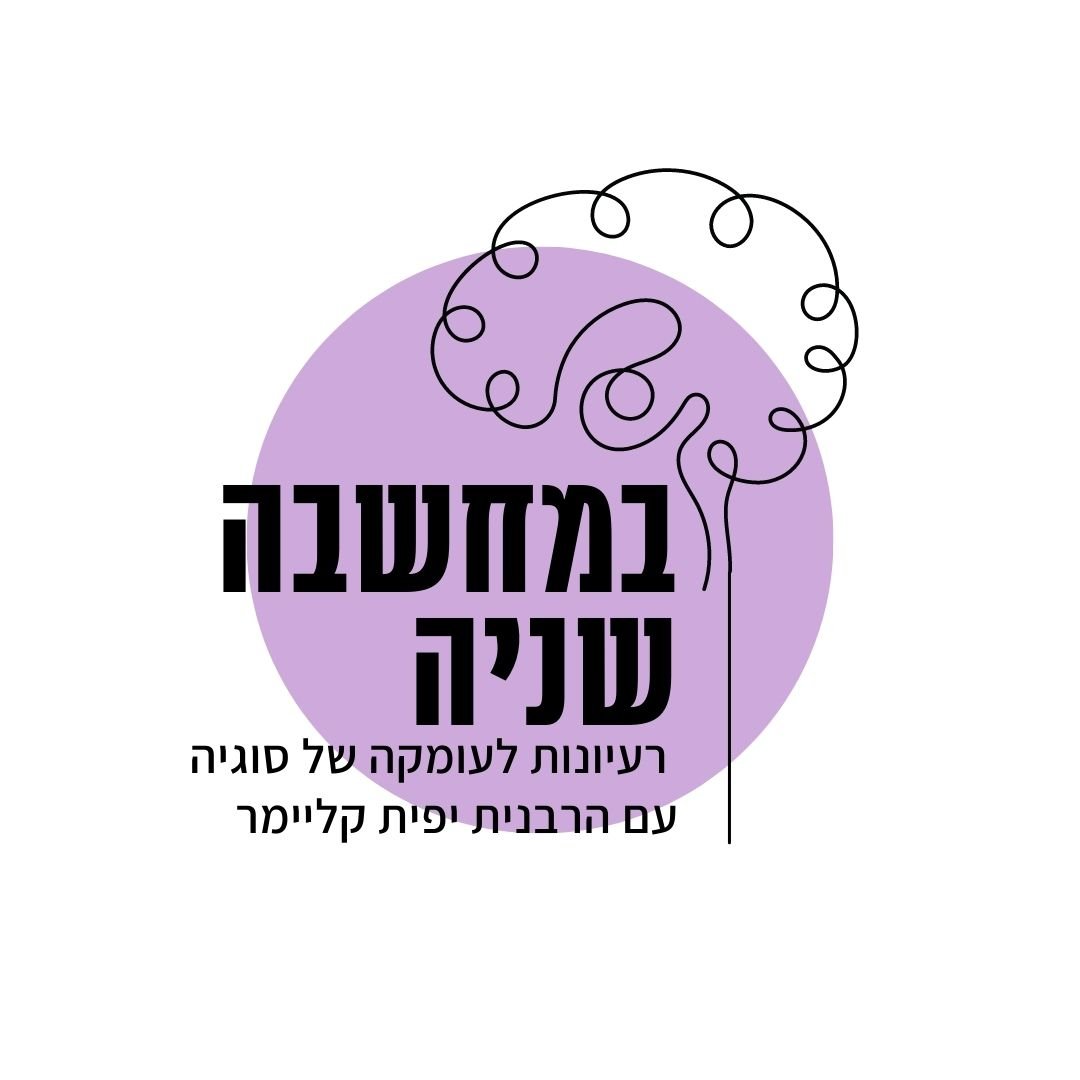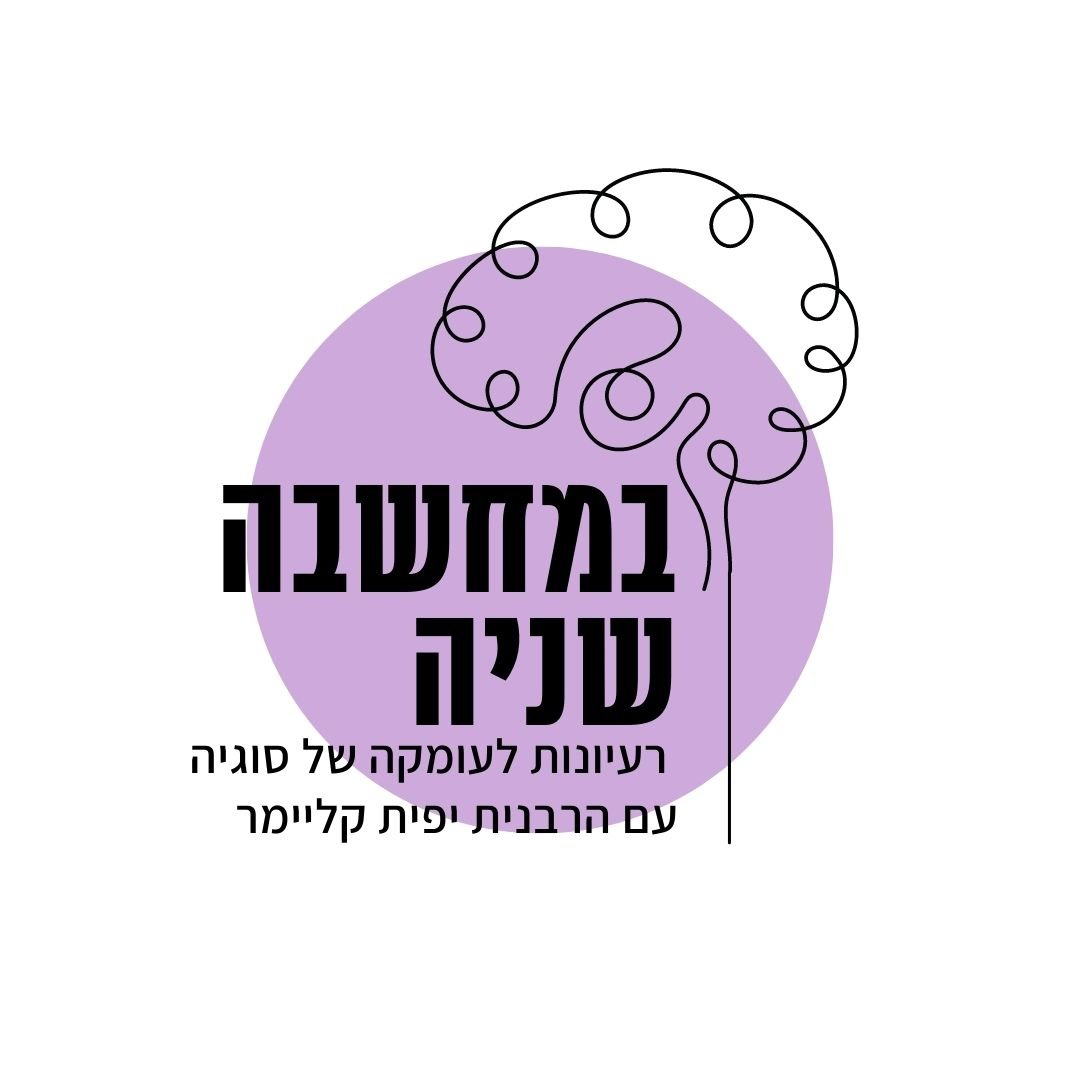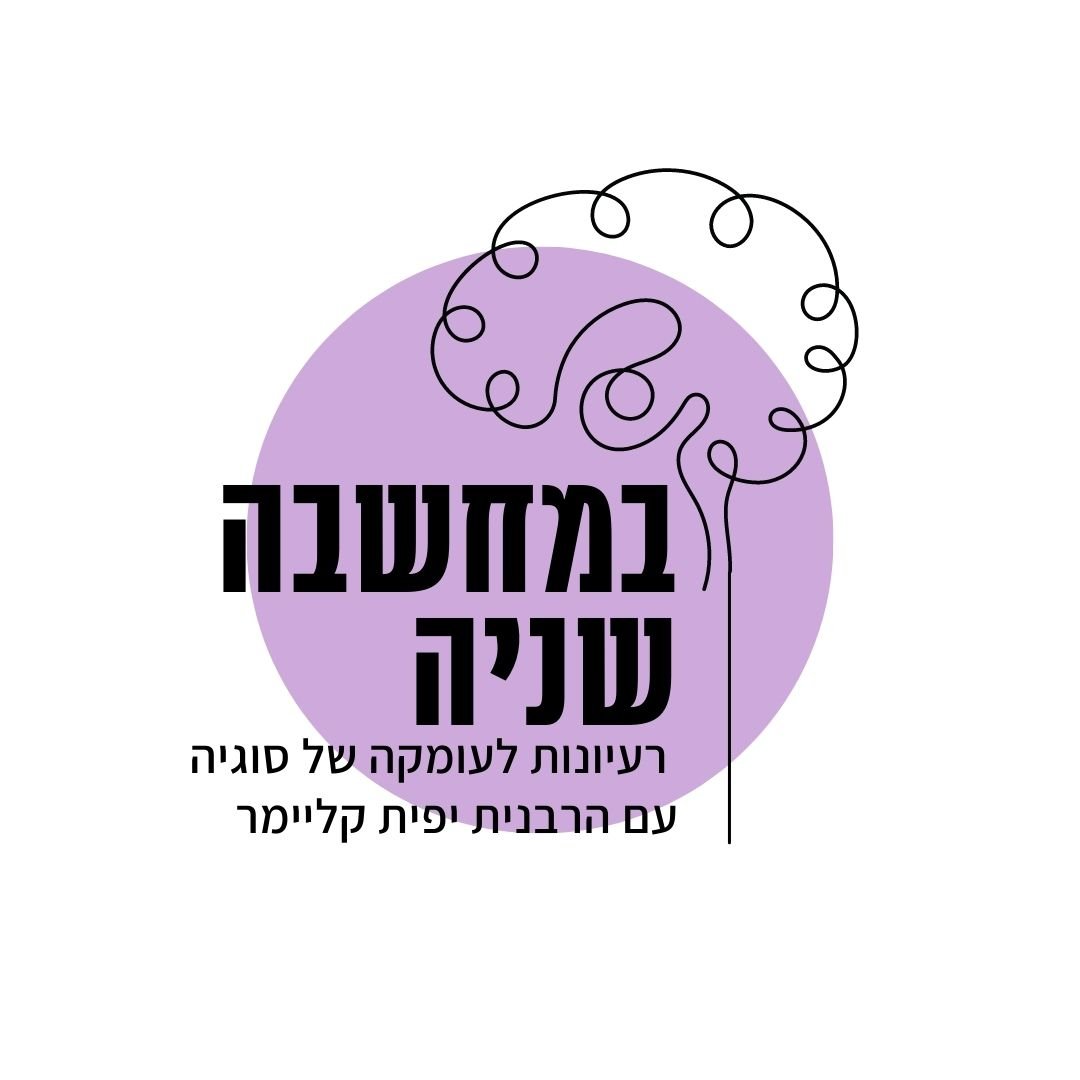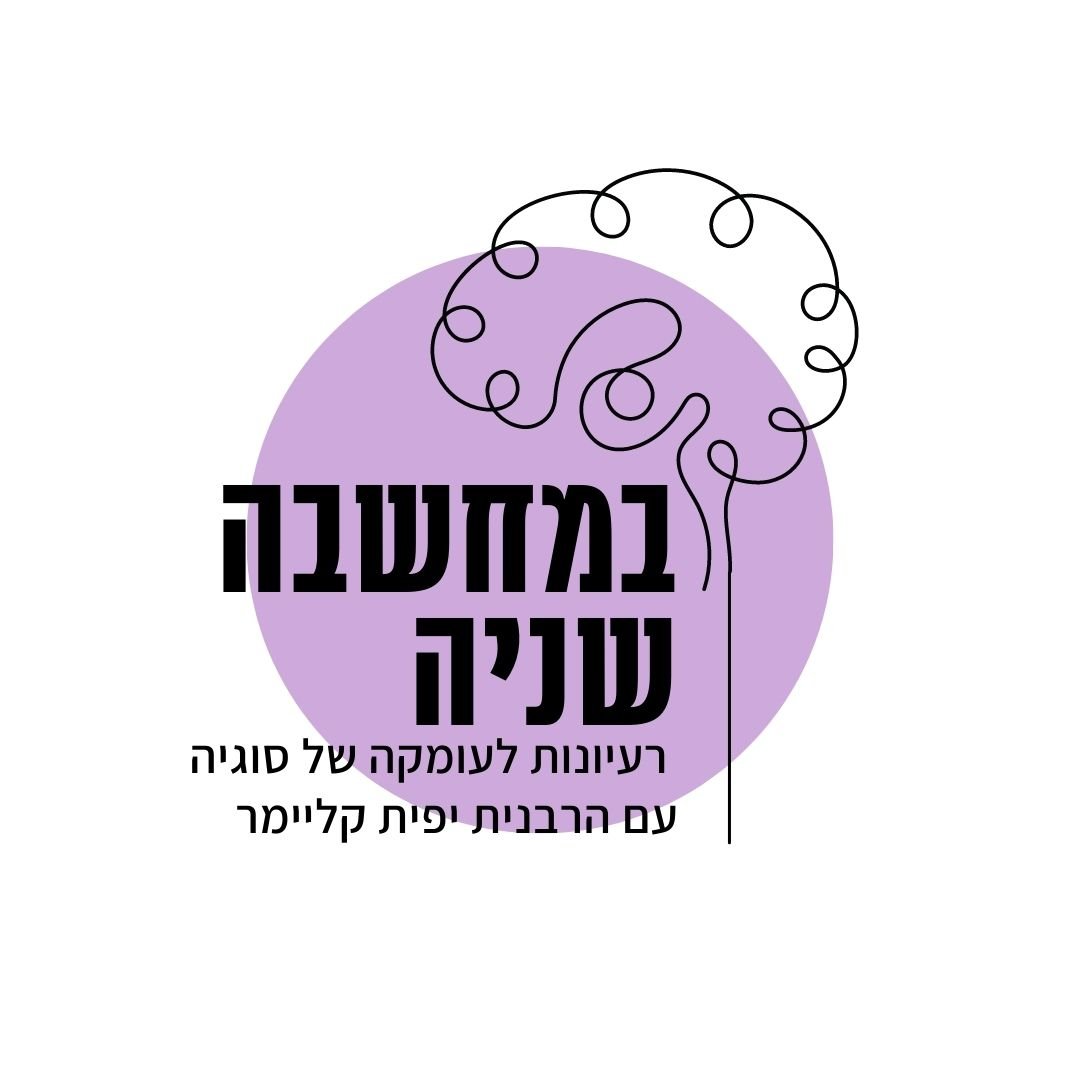נזיר סד
מַאי טַעְמָא דְּתַנָּא קַמָּא? אָמַר רַבִּי יִצְחָק בַּר אֲבוּדִימִי, כְּתִיב: ״בְּכׇל הַשֶּׁרֶץ הַשֹּׁרֵץ״, כׇּל מָקוֹם שֶׁהוּא שׁוֹרֵץ, וּכְתִיב ״עַל הָאָרֶץ״. הָא כֵּיצַד? וַדַּאי מַגָּעוֹ — טָמֵא, סְפֵק מַגָּעוֹ — טָהוֹר.
What is the reason of the first tanna for declaring that in all uncertain cases of floating impurity the person or item remains pure? Rabbi Yitzḥak bar Avudimi says: In the passage dealing with the impurity of creeping animals and the prohibition of eating them it is written: “With any swarming thing that swarms” (Leviticus 11:43), indicating that a carcass of a creeping animal renders items impure in any place where it swarms. And it is written: “All swarming things that swarm upon the earth” (Leviticus 11:42), indicating that it transmits impurity only if it is on the earth. How so? How can one reconcile these two verses? Definite contact with it renders one impure; one who has uncertain contact with it, e.g., the impurity is floating, remains pure.
וְרַבִּי שִׁמְעוֹן מַאי טַעְמָא? אָמַר עוּלָּא: כְּתִיב ״אַךְ מַעְיָן״, וּכְתִיב ״יִטְמָא״ (עַד הָעָרֶב), הָא כֵּיצַד? צָפָה בְּכֵלִים — טָמֵא, בְּקַרְקַע — טָהוֹר.
The Gemara asks: And Rabbi Shimon, what is the reason for his opinion? Ulla said that as it is written: “Nevertheless a fountain or a cistern in which there is a gathering of water shall be pure” (Leviticus 11:36), this indicates that a creeping animal found in one of these places does not impart impurity. And it is written in the same verse: “He who touches their carcass shall be impure until evening,” which indicates that it does render one impure. How so? If the impurity was floating in water contained in vessels, the item it touched is rendered impure, but if the water was in the ground itself, e.g., in a spring or pit, the item it touched is pure.
תָּנוּ רַבָּנַן: כׇּל הַנִּיטָּלִין וְהַנִּגְרָרִין — סְפֵיקָן טָמֵא, מִפְּנֵי שֶׁהֵן כְּמוּנָּחִין. וְהַנִּזְרָקִין — סְפֵיקָן טָהוֹר.
The Sages taught (Tosefta, Teharot 3:13): All items that impart impurity that are carried by human hand or that are dragged along are not considered floating impurities, despite the fact that they are in motion. Rather, in a case where there is uncertainty whether a carried or dragged item affected a person, the individual is rendered impure, because the items are considered as though they were at rest. And in the case of items that are thrown by people, in uncertain cases that pertain to them, the individual remains pure.
חוּץ מִן כְּזַיִת הַמֵּת, וְהַמַּאֲהִיל עַל פְּנֵי טוּמְאָה, וְכׇל דָּבָר שֶׁמְּטַמֵּא מִלְּמַעְלָה כִּלְמַטָּה. לְאֵיתוֹיֵי זָב וְזָבָה.
This is the halakha, except for an olive-bulk from a corpse, which transmits impurity through uncertain contact even if it was thrown; and that which overlies impurity when thrown, i.e., an item that might have been positioned over a corpse when it was thrown; and anything that renders items above it impure like it renders those below it impure. To what does this last clause refer? It comes to include a zav and a zava, who render items placed above and below them impure even without contact. If something thrown or floating might have come into contact with a zav or zava, it is impure.
בָּעֵי רָמֵי בַּר חָמָא: מֵת בִּכְלִי, וּכְלִי צָף עַל פְּנֵי הַמַּיִם, מַהוּ? בָּתַר כְּלִי אָזְלִינַן, אוֹ בָּתַר מִיתָא אָזְלִינַן?
With regard to this halakha of a floating impurity, Rami bar Ḥama raises a dilemma: If there is a corpse in a vessel and the vessel is floating on water, and one did not overlie it but might have touched it, what is the halakha? Do we go according to the floating vessel or do we go according to the corpse, which is resting on a solid surface?
אִם תִּמְצֵי לוֹמַר בָּתַר כְּלִי אָזְלִינַן: מֵת עַל גַּבֵּי שֶׁרֶץ, מַהוּ? כֵּיוָן דְּהַאי טוּמְאַת עֶרֶב, וְהַאי טוּמְאַת שִׁבְעָה, כְּמַאן דְּמַחֲתָא טוּמְאָה בִּכְלִי דָּמְיָא, אוֹ דִילְמָא טוּמְאָה סְמִיכְתָּא הִיא.
If you say that we go according to the vessel and one is rendered ritually impure, the following question arises: If a corpse is placed on top of the carcass of a creeping animal, which is floating on water, what is the halakha? Do we say that since this impurity of a creeping animal is an impurity for an evening, i.e., it lasts one day, and this impurity imparted by a corpse is an impurity for seven days, it is considered as though the impurity imparted by a corpse were placed in a vessel, and he is impure? Or, perhaps the fact that both a corpse and a creeping animal impart impurity means that it is one solid impurity, and because the creeping animal is floating he is pure.
וְאִם תִּמְצֵי לוֹמַר כְּמַאן דְּמַחֲתָא טוּמְאָה בִּכְלִי דָּמְיָא, וְטָמֵא וַדַּאי. שֶׁרֶץ עַל גַּבֵּי נְבֵלָה, וּנְבֵלָה צָפָה, מַהוּ? כֵּיוָן דְּתַרְוַיְיהוּ טוּמְאַת עֶרֶב אִינּוּן — טוּמְאָה סְמִיכְתָּא הִיא. אוֹ דִילְמָא: הַאי כְּזַיִת וְהַאי כַּעֲדָשָׁה?
And if you say that due to their different levels of impurity it is considered as though the impurity were placed in a vessel and therefore one is definitely impure, one can raise an additional dilemma. If a creeping animal is atop an unslaughtered animal carcass and the animal carcass is floating, then what is the halakha? Do we say that since they are both examples of an impurity for an evening, it is considered a single solid impurity, or perhaps here too they are different, as this one, the carcass, renders items impure when it is the amount of an olive-bulk, and this one, the creeping animal, does so when it is the amount of a lentil-bulk. In that case, the animal carcass and the creeping animal should be considered separate items, and it is as though the impurity is placed in a vessel, and he is impure.
שֶׁרֶץ עַל גַּבֵּי שֶׁרֶץ מַהוּ? הָנֵי וַדַּאי חַד שִׁיעוּרָא נִינְהוּ, אוֹ דִילְמָא כֵּיוָן דְּמִפַּסְקִי מֵהֲדָדֵי — לָא.
If in that case they are considered separate, then one can also ask: If a creeping animal is positioned atop another creeping animal, what is the halakha? Do we say that these certainly have the same measurement with regard to transmitting impurity, and that they consequently should be viewed as a single floating items, which means he is pure? Or, perhaps, since they are separate from each other and are not in fact a single item, they are not considered as one unit.
וְאִם תִּמְצֵי לוֹמַר: שֶׁרֶץ עַל גַּבֵּי שֶׁרֶץ כֵּיוָן דְּמִפַּסְקִי מֵהֲדָדֵי כְּמַאן דְּמַנְּחָא בִּכְלִי דָּמֵי, שֶׁרֶץ עַל גַּבֵּי נְבֵלָה שֶׁנִּימּוֹחָה, מַהוּ? כֵּיוָן דְּנִימּוֹחָה הָוְיָא לַיהּ מַשְׁקֶה, אוֹ דִּלְמָא הַאי אוּכְלָא הוּא.
And if you say that in the case of a creeping animal atop a creeping animal, since they are separate from each other, it is considered as though the impurity were placed in a vessel and is not floating, one can raise an additional dilemma. If a creeping animal was placed atop an animal carcass that has dissolved, what is the halakha? Do we say that since it has dissolved it has become like liquid, and therefore it is as though the creeping animal were floating on liquid? Or, perhaps this carcass is still considered food, rather than a liquid, and the creeping animal is on a solid surface.
וְאִם תִּמְצֵי לוֹמַר דְּאוּכְלָא הוּא, שֶׁרֶץ עַל גַּבֵּי שִׁכְבַת זֶרַע, מַהוּ? וְאִם תִּמְצֵי לוֹמַר כֵּיוָן דְּמִיתְעַקְּרָא הָוְיָא לַהּ כִּי אוּכְלָא, שֶׁרֶץ עַל גַּבֵּי מֵי חַטָּאת וּמֵי חַטָּאת צָפִין עַל גַּבֵּי הַמַּיִם, מַהוּ? לָא יָדְעִינַן, תֵּיקוּ.
And if you say that a dissolved animal carcasses is considered food, one can raise an additional dilemma. If a creeping animal was placed on top of semen, which is certainly liquid, what is the halakha? Is this creeping animal considered a floating impurity? And if you say that once semen is ejaculated from the body it is considered like food rather than drink, as it is viscous, one can raise an additional dilemma. If a creeping animal was placed atop waters of purification, i.e., the water into which the ashes of the red heifer are mixed, which becomes highly viscous, and the waters of purification are floating on water, what is the halakha? The Gemara responds: We do not know the answer to any of these questions, and therefore the dilemmas shall stand unresolved.
אָמַר רַב הַמְנוּנָא: נָזִיר וְעוֹשֵׂה פֶסַח שֶׁהָלְכוּ בְּקֶבֶר הַתְּהוֹם בַּשְּׁבִיעִי שֶׁלָּהֶן — טְהוֹרִים. מַאי טַעְמָא — דְּלָא אַלִּימָא טוּמְאַת הַתְּהוֹם לְמִיסְתַּר.
Rav Hamnuna says: In the case of a nazirite and one performing the ritual of the Paschal offering who walked by a grave in the depths, i.e., an unknown grave, on their seventh day of their purification, i.e., seven days after they were sprinkled with the purification waters after having contracted ritual impurity imparted by a corpse, they are pure. If the nazirite shaved for his impurity and completed his naziriteship in purity or if the one performing the ritual of the Paschal offering sacrificed his offering, then when he eventually discovers the impurity, it is considered as though he were pure all along. What is the reason for this lenient ruling? It is because the ritual impurity imparted by a grave in the depths is not strong enough to negate their actions, i.e., the nazirite offerings or the Paschal offering.
מֵתִיב רָבָא: יָרַד לִיטָּהֵר מִטּוּמְאַת הַמֵּת — טָמֵא, שֶׁחֶזְקַת טָמֵא — טָמֵא, שֶׁחֶזְקַת טָהוֹר — טָהוֹר.
Rava raised an objection to this ruling from the statement of the mishna that if there is one whose impurity imparted by a grave in the depths is uncertain and he descended to purify himself from the ritual impurity imparted by a corpse, he is impure, as a person or item that has the presumptive status of impurity remains impure, and one that has the presumptive status of purity remains pure. Here too, the nazirite and the one performing the ritual of the Paschal offering had not completed their purification at the time, as the seventh day following their being sprinkled had not ended. As their presumptive status is impure, they are retroactively rendered impure, even by an impurity of the depths.
אֲמַר לֵיהּ: מוֹדֵינָא לָךְ בְּנָזִיר, שֶׁמְחוּסָּר תִּגְלַחַת.
Rav Hamnuna said to Rava: I agree with you with regard to a nazirite who descended to purify himself and who is lacking the act of shaving. He has yet to shave his head for his impurity and is therefore not completely pure. Consequently, he follows his prior presumptive status of impurity.
אֲמַר לֵיהּ רָבָא: אַף אֲנָא מוֹדֵינָא לָךְ בְּעוֹשֵׂה פֶסַח, דְּלָא מְחוּסָּר וְלָא כְלוּם. אֲמַר לֵיהּ אַבָּיֵי: וְהָא מְחוּסָּר הֶעֱרֵב שֶׁמֶשׁ! אֲמַר לֵיהּ: שִׁימְשָׁא מִמֵּילָא עָרְבָא.
Rava said to him: I, too, agree with you with regard to one performing the ritual of the Paschal offering that he is pure, as he is not lacking anything. Since he does not have to perform any action on his body before he can bring an offering, one can say that he already has a presumptive status of purity on the seventh day. Abaye said to him: But he is still lacking sunset, i.e., he is not fully pure until the sun sets on the seventh day. Rava said to Abaye: The sun sets by itself, and therefore this cannot be seen as a deficiency involving an action.
וְאַף אַבָּיֵי הֲדַר בֵּיהּ. דְּתַנְיָא:
The Gemara comments: And even Abaye accepted Rava’s answer and retracted, as can be seen from that which is taught in a baraita. By Torah law, a woman who gives birth to a boy is ritually impure for seven days, and a woman who gives birth to a girl is impure for fourteen days. At that point, the woman immerses in a ritual bath and is purified. Any blood that emerges from the woman during her days of purity, i.e., for forty days following the birth of a male and eighty days following the birth of a female, does not render her impure. She cannot bring the offering brought by a woman who has given birth or miscarried until she has immersed at the end of these days (see Leviticus, chapter 12). The baraita discusses a case where a woman who had given birth became pregnant and miscarried before she had brought her offering for the first birth.
יוֹם מְלֹאת — תָּבִיא. תּוֹךְ מְלֹאת — לֹא תָּבִיא.
The baraita teaches: If a woman miscarried on the day of the fulfillment of her purity, on the eighty-first day after a female, she must bring a separate offering for the miscarried fetus, as she was obligated to bring one offering before her miscarriage. If she miscarried during the fulfillment, i.e., before the conclusion of the eighty days for the birth of a daughter, she does not bring two offerings but only one, just as is the halakha in the case of one who gives birth to twins.
יָכוֹל לֹא תָּבִיא עַל לֵידָה שֶׁלִּפְנֵי מְלֹאת, אֲבָל תָּבִיא עַל לֵידָה שֶׁלְּאַחַר מְלֹאת, וְתִיפָּטֵר מִשְּׁתֵּיהֶן —
The baraita continues: One might have thought that she should not bring an offering for her childbirth, i.e., miscarriage, that occurred before the fulfillment of the days of her purity but she should bring for her childbirth that occurred after its completion. In other words, if she had yet another miscarriage, after the days of her purity for her initial birth but within the eighty days of purity following her first miscarriage, she should bring an extra offering and thereby discharge both obligations, of her birth and her final miscarriage.
תַּלְמוּד לוֹמַר: ״וּבִמְלֹאת יְמֵי טׇהֳרָה״. בְּיוֹם מְלֹאת — תָּבִיא, תּוֹךְ מְלֹאת — לֹא תָּבִיא.
Therefore, to counteract this possibility, the verse states: “And when the days of her purity are fulfilled…she shall bring” (Leviticus 12:6). This teaches that it is only if she miscarried on the day of the fulfillment itself that she must bring an offering for a miscarriage, but if she miscarried before the fulfillment of the days of her purity of the earlier miscarriage, even if this occurred more than eighty days after the first birth, she does not bring another offering.
אָמַר רַב כָּהֲנָא: שָׁאנֵי הָכָא, דִּמְחַסְּרָא קׇרְבָּן. הָתָם נָמֵי, מְחַסְּרָא הֶעֱרֵב שֶׁמֶשׁ!
Rav Kahana said in explanation: Here it is different. The reason why she does not bring an offering for a miscarriage during her days of purity is that she lacks the possibility of bringing her offering. Since she cannot bring her offering until the end of her term of purity, she cannot incur another obligation during this period, no matter how many births occur within eighty days of the previous one. However, this leads Rav Kahana to ask: There too, if she had a miscarriage on the day of the completion of her term, she cannot bring her offering either, as she lacks sunset. Why, then, must she bring an additional offering?
אֲמַר לֵיהּ אַבָּיֵי: שִׁימְשָׁא מִמֵּילָא עָרְבָא.
Abaye said to Rav Kahana: The sun sets by itself and is not considered a deficiency with regard to her purity. This discussion shows that Abaye accepted Rava’s reasoning, as he submitted the same argument himself in a different context.
מַתְנִי׳ הַמּוֹצֵא מֵת בַּתְּחִילָּה, מוּשְׁכָּב כְּדַרְכּוֹ — נוֹטְלוֹ וְאֶת תְּפוּסָתוֹ.
MISHNA: One who finds a corpse for the first time, i.e., he discovers a single corpse in a place that was not previously established as a cemetery, if the corpse is lying in the usual manner of Jewish burial, he removes it from there and also its surrounding earth. It is assumed that this corpse was buried there alone. There is no concern that this area is a cemetery and therefore the corpse may not be moved, nor does one take into account the possibility that another corpse may be buried in the vicinity.
שְׁנַיִם — נוֹטְלָן וְאֶת תְּפוּסָתָן. מָצָא שְׁלֹשָׁה, אִם יֵשׁ בֵּין זֶה לָזֶה מֵאַרְבַּע אַמּוֹת וְעַד שְׁמוֹנֶה — הֲרֵי זוֹ שְׁכוּנַת קְבָרוֹת.
Similarly, if he found two corpses, he removes them and their surrounding earth. In a case where he found three corpses, if there is a space between this corpse and that corpse of four to eight cubits, in a standard design, this is a graveyard. There is a concern that this might be an ancient cemetery.

